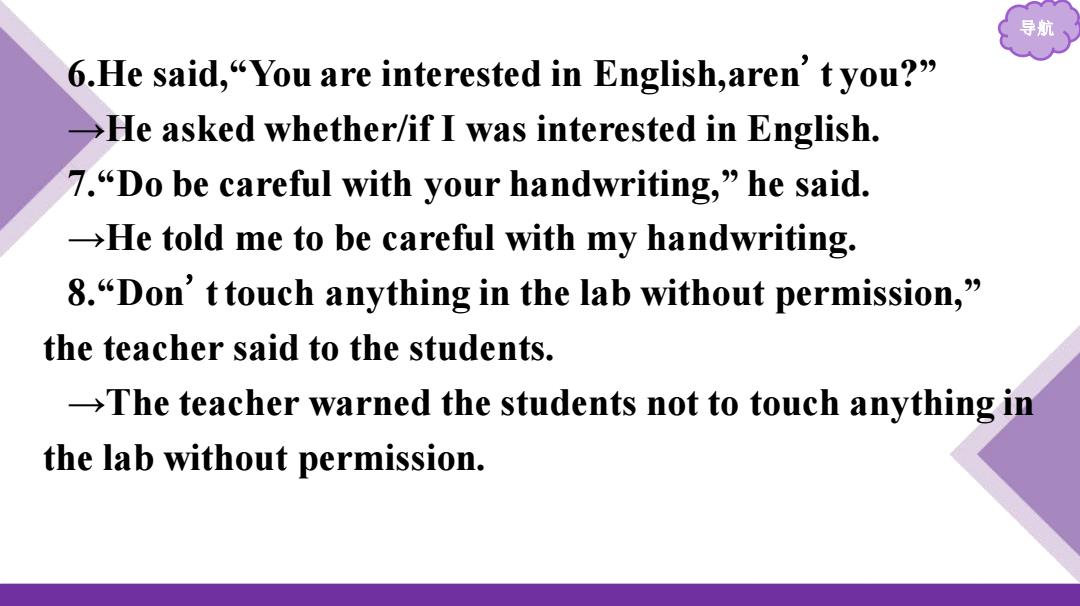
6.He said,"You are interested in English,aren't you?" >He asked whether/if I was interested in English. 7."Do be careful with your handwriting,"he said. He told me to be careful with my handwriting. 8."Don't touch anything in the lab without permission," the teacher said to the students. -The teacher warned the students not to touch anything in the lab without permission
导航 6.He said,“You are interested in English,aren't you?” →He asked whether/if I was interested in English. 7.“Do be careful with your handwriting,” he said. →He told me to be careful with my handwriting. 8.“Don't touch anything in the lab without permission,” the teacher said to the students. →The teacher warned the students not to touch anything in the lab without permission
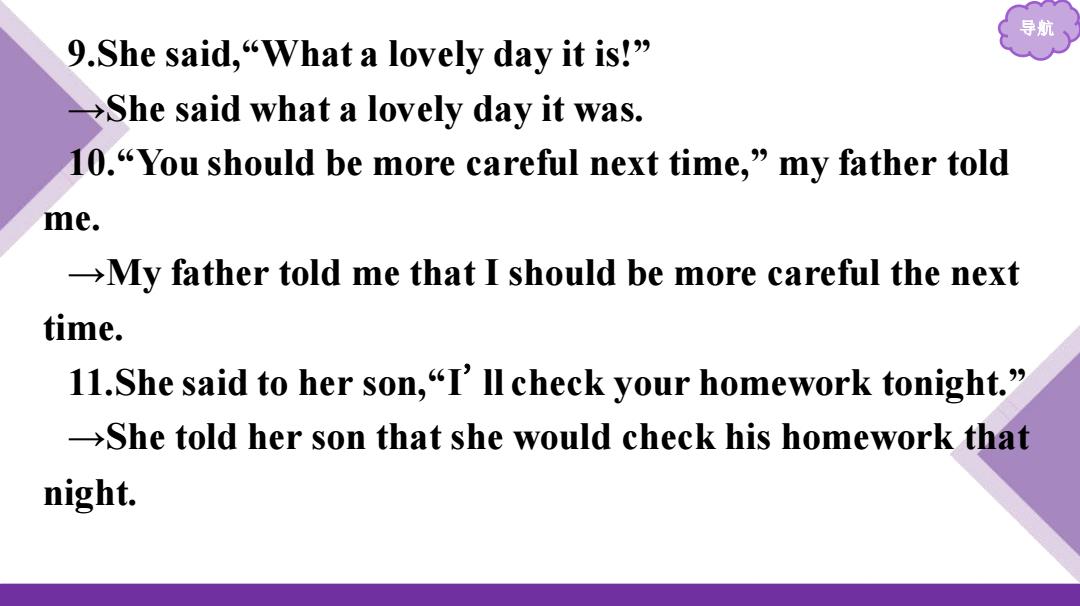
导 9.She said,"What a lovely day it is!" She said what a lovely day it was. 10."You should be more careful next time,"my father told me. >My father told me that I should be more careful the next time. 11.She said to her son,"I'll check your homework tonight." >She told her son that she would check his homework that night
导航 9.She said,“What a lovely day it is!” →She said what a lovely day it was. 10.“You should be more careful next time,” my father told me. →My father told me that I should be more careful the next time. 11.She said to her son,“I'll check your homework tonight.” →She told her son that she would check his homework that night
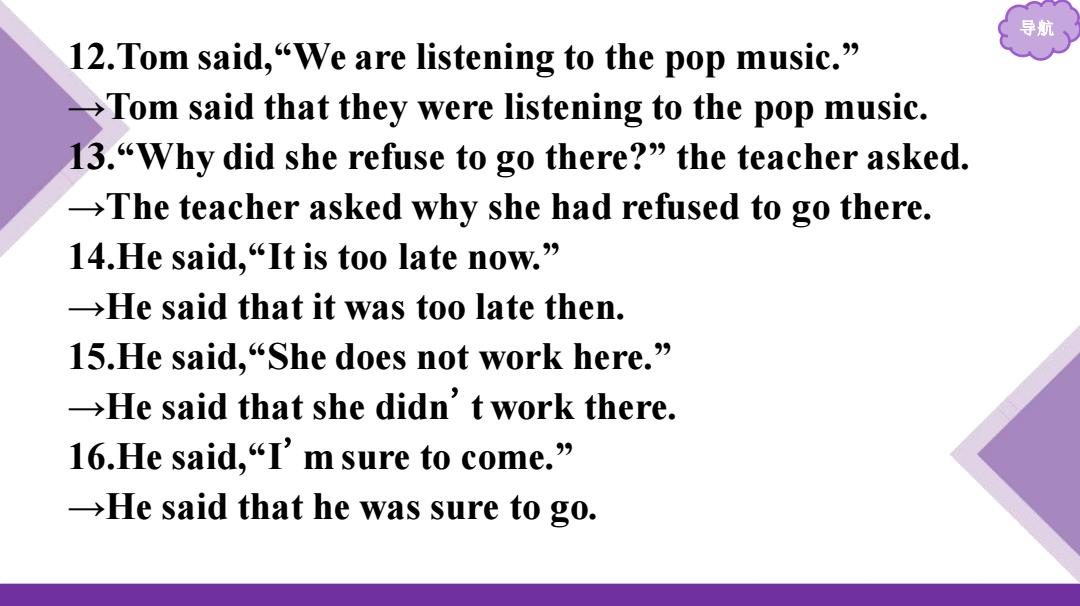
12.Tom said,"We are listening to the pop music." Tom said that they were listening to the pop music. 13."Why did she refuse to go there?"the teacher asked. The teacher asked why she had refused to go there. 14.He said,“It is too late now.” >He said that it was too late then, 15.He said,"She does not work here." >He said that she didn't work there. l6.He said,“T'm sure to come.” >He said that he was sure to go
导航 12.Tom said,“We are listening to the pop music.” →Tom said that they were listening to the pop music. 13.“Why did she refuse to go there?” the teacher asked. →The teacher asked why she had refused to go there. 14.He said,“It is too late now.” →He said that it was too late then. 15.He said,“She does not work here.” →He said that she didn't work there. 16.He said,“I' m sure to come.” →He said that he was sure to go
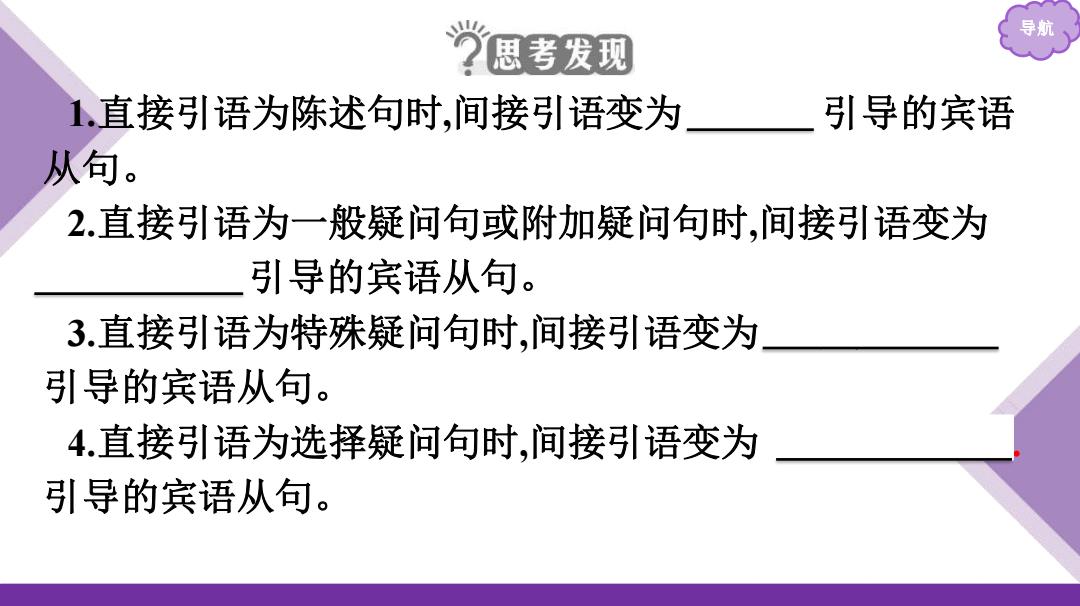
学思考发现 导 1.直接引语为陈述句时,间接引语变为 引导的宾语 从句。 2.直接引语为一般疑问句或附加疑问句时,间接引语变为 引导的宾语从句。 3.直接引语为特殊疑问句时,间接引语变为 引导的宾语从句。 4.直接引语为选择疑问句时,间接引语变为 引导的宾语从句
导航 1.直接引语为陈述句时,间接引语变为 that 引导的宾语 从句。 2.直接引语为一般疑问句或附加疑问句时,间接引语变为 whether/if 引导的宾语从句。 3.直接引语为特殊疑问句时,间接引语变为 特殊疑问词 引导的宾语从句。 4.直接引语为选择疑问句时,间接引语变为 whether...or... 引导的宾语从句
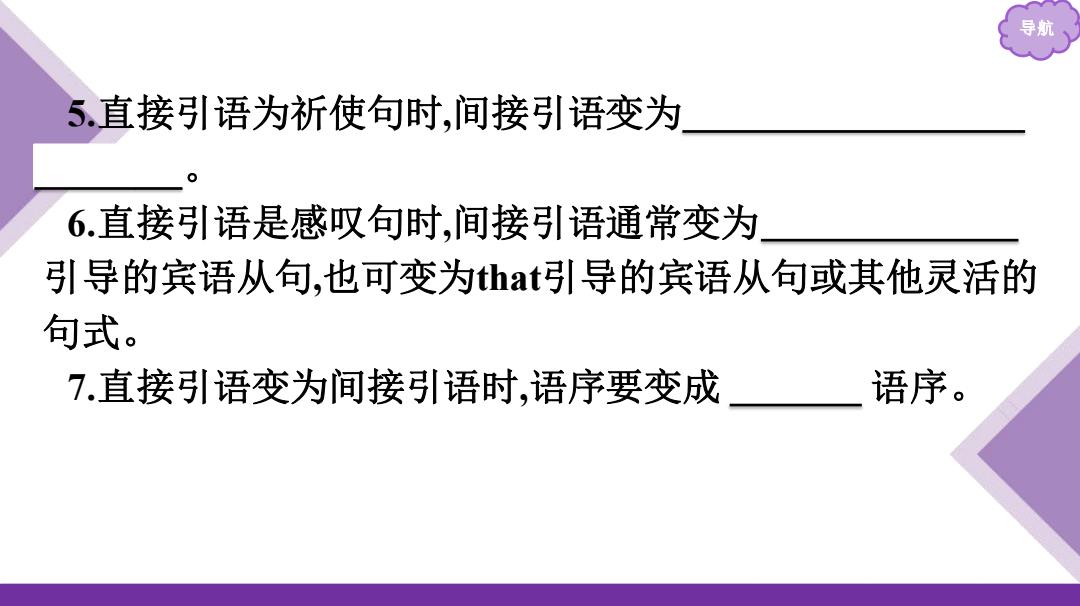
导 5.直接引语为祈使句时,间接引语变为 6.直接引语是感叹句时,间接引语通常变为 引导的宾语从句,也可变为hat引导的宾语从句或其他灵活的 句式。 7.直接引语变为间接引语时,语序要变成 语序
导航 5.直接引语为祈使句时,间接引语变为 带to的动词不定式 (短语) 。 6.直接引语是感叹句时,间接引语通常变为 what或how 引导的宾语从句,也可变为that引导的宾语从句或其他灵活的 句式。 7.直接引语变为间接引语时,语序要变成 陈述 语序